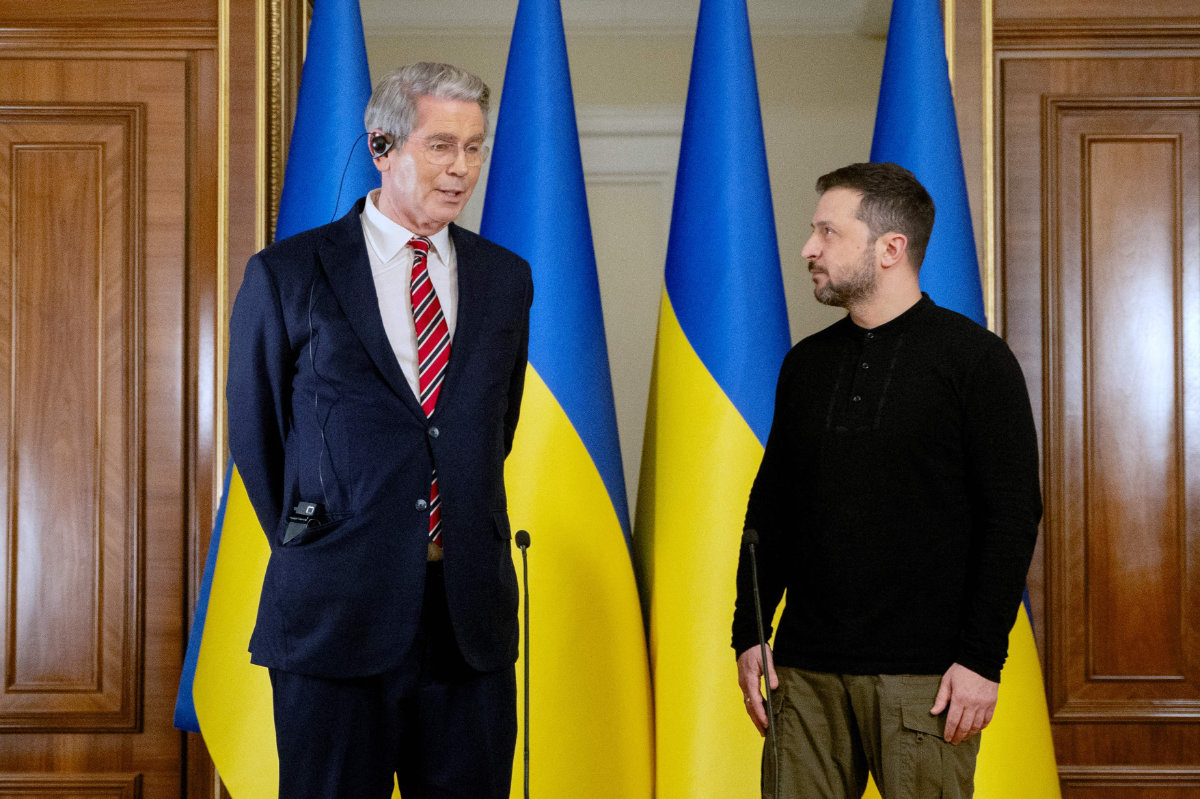Vice President Kamala Harris is a Baptist who was influenced by religious traditions in her mother’s home country of India.
Former President Donald Trump grew up a mainline Presbyterian but began identifying as a nondenominational Christian near the end of his presidency.
Despite that, few Americans see the presidential candidates as particularly Christian, according to a new survey conducted Sept. 12-16 by the Associated Press-NORC Center for Public Affairs. Only 14% of U.S. adults say the word “Christian” describes Harris or Trump “extremely” or “very” well.
Strikingly, that appears to matter little to part of Trump’s loyal base: white evangelical Protestants. About 7 in 10 members of this group view him favorably. But only about half say Trump best represents their beliefs — around 1 in 10 say this about Harris, and one-third say neither candidate represents their religious beliefs — and around 2 in 10 say “Christian” describes him extremely or very well.
“They really don’t care about, is he religious or not,” said R. Marie Griffith, a religion and politics professor at Washington University in St. Louis.
The survey results represent the shift in how white evangelicals now talk about morality and religion in politics, said Griffith. She pointed to a white evangelical culture that takes care of its own, but sees liberal outsiders as evil, and therefore, support for a Democrat is unimaginable to many.
Evangelical leaders, she said, are pushing this idea that, “this is God’s man, and we can’t ask why. We don’t have to ask why. It doesn’t matter if he’s moral, it doesn’t matter if he’s religious. It doesn’t matter if he lies compulsively. It’s for the greater good that we get him re-elected.”
At the Republican National Convention, Arkansas Gov. Sarah Huckabee Sanders, a conservative Christian and Trump’s former White House press secretary, invoked God when she addressed the first assassination attempt against him.
“God Almighty intervened because America is one nation under God, and he is certainly not finished with President Trump,” she said. “And our country is better for it.”
Anthea Butler, professor of religious studies at the University of Pennsylvania, said white evangelicals likely see him as instrumental to their goals, such as his appointment of conservative, anti-abortion justices to the Supreme Court.
“He’s their guy no matter what,” said Butler.
For the head of the Democratic ticket, a large majority — three-quarters — of Harris’ fellow Black Protestants view her favorably and 6 in 10 say she best represents their religious beliefs. But only around 4 in 10 say “Christian” describes her very or extremely well. That’s still higher than the share of Democrats overall who think this about Harris, at around one-quarter.
Butler is not surprised that esteem for Trump is low among Black Protestants, and that they are more likely to see Harris, a Baptist with influences from the spiritual tradition of her mother’s native India, as Christian.
“I think African Americans have a better understanding about interfaith families, because it happens a lot with us,” she said.
Overall, about half of Americans surveyed said that Christian at least “somewhat” described Harris, while about one-third said so about Trump.
Griffith questioned if one reason so few Americans see Harris as particularly Christian, is because they just don’t know much about her yet. Harris joined the race late, becoming the Democratic nominee after President Joe Biden was pressured to step away in July.
The Black Church PAC, a progressive group, is now trying to mobilize voters for Harris. On a recent online discussion hosted by the PAC, the Rev. Traci Blackmon, a Missouri-based United Church of Christ minister, encouraged pastors to ask every Sunday for congregants to pull out their phones and check their voter registration status, and to prepare to use the church bus to give rides to the polls.
“Kamala Harris is not perfect – no one is perfect. But what she is, is competent. What she is, is prepared. What she is, is qualified. … What she is, is she’s faithful to the things she says she will do and courageous enough to say what she won’t do,” said Blackmon.
Neither candidate fared particularly well when Americans were asked if they’d use the words “honest” or “moral” to describe them. Around one-third say those words describe Harris extremely or very well, and about 15% say the same for Trump. Adding in those who say the words “somewhat” describe the candidates raises the levels to more than half for Harris and about one-third for Trump.
“I wonder if speaks to just a deep cynicism about politics – that people are really so convinced that all politicians are liars,” said Griffith.
___
The poll of 2,028 adults was conducted September 12-16, 2024, using a sample drawn from NORC’s probability-based AmeriSpeak Panel, which is designed to be representative of the US population. The margin of sampling error for all respondents is plus or minus 3.1 percentage points.
































